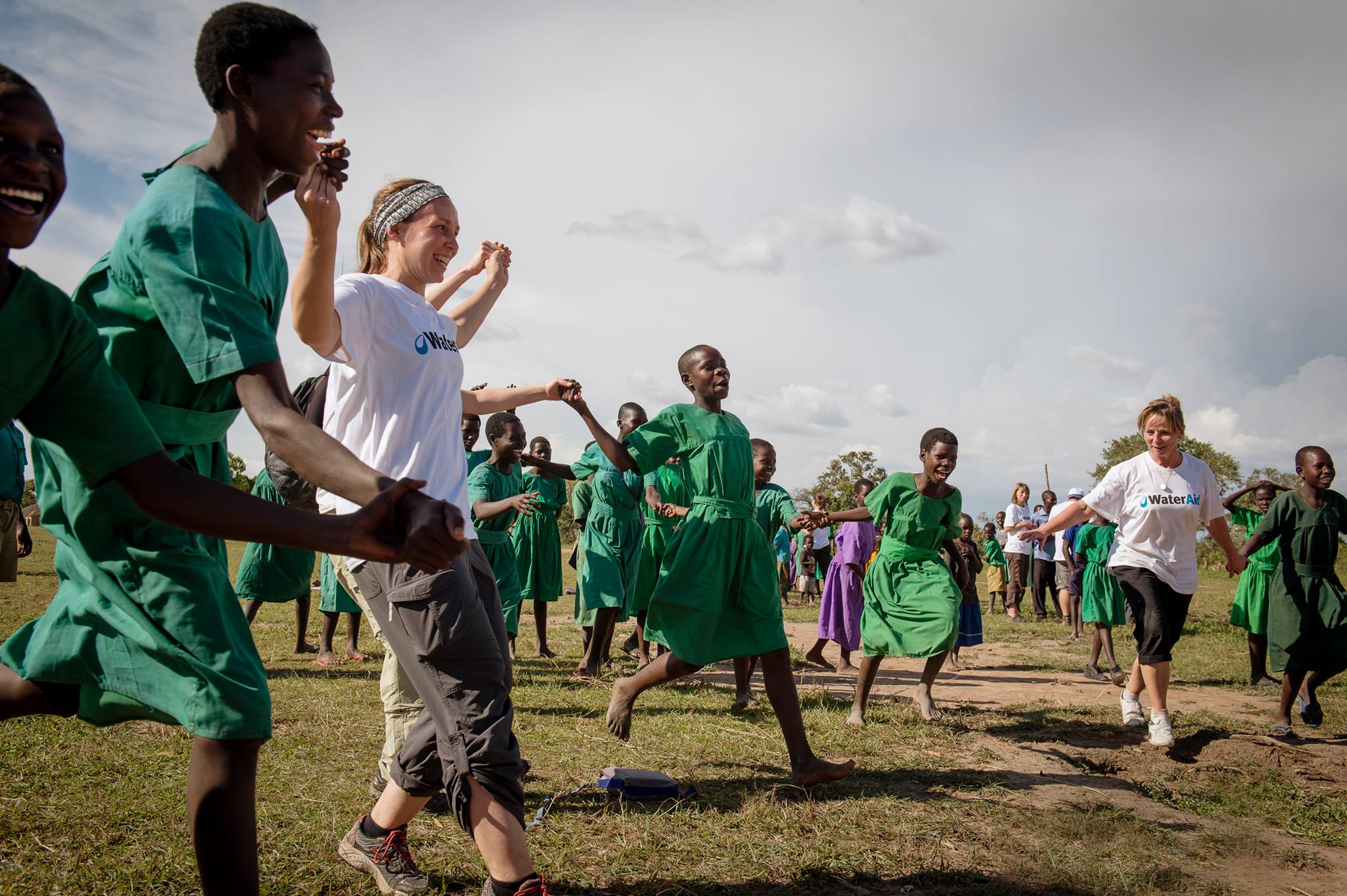After yesterday's visit to Ojolai visit we were promised our visit to Bobol village would be more uplifting! WaterAid had intervened in Bobol in 2011 so the village had been receiving access to clean water for around three years. The visit format would be the same as yesterday's itinerary; a visit to the village in the morning followed by a school visit in the afternoon. We were in the jeeps at 6am just in time to catch the African sunrise.
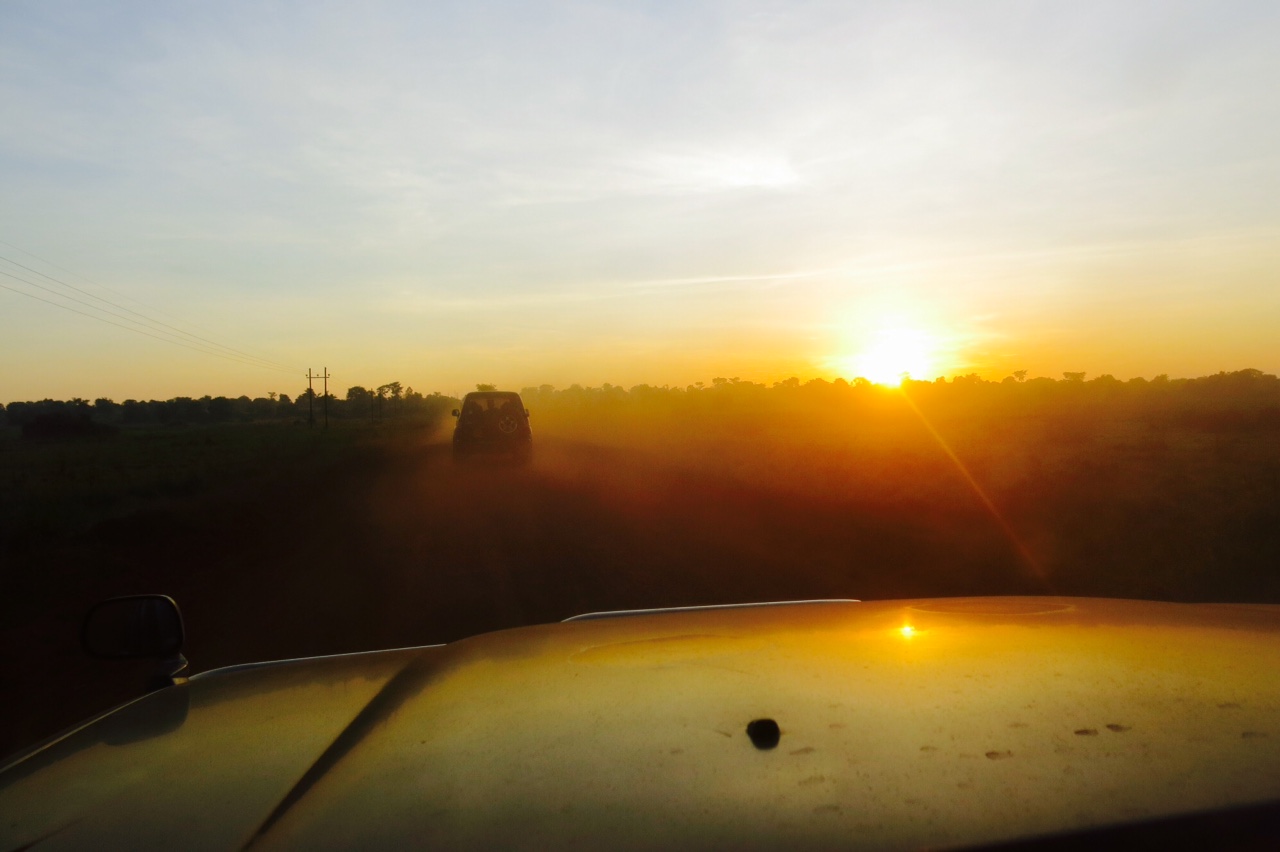
Bobol village was about an hour's drive away on the now familiar dusty, bumpy Ugandan roads. We arrived and met our host family for the day Julius, his wife Dinah and their two children Christine and Japhieth as well as their extended family.
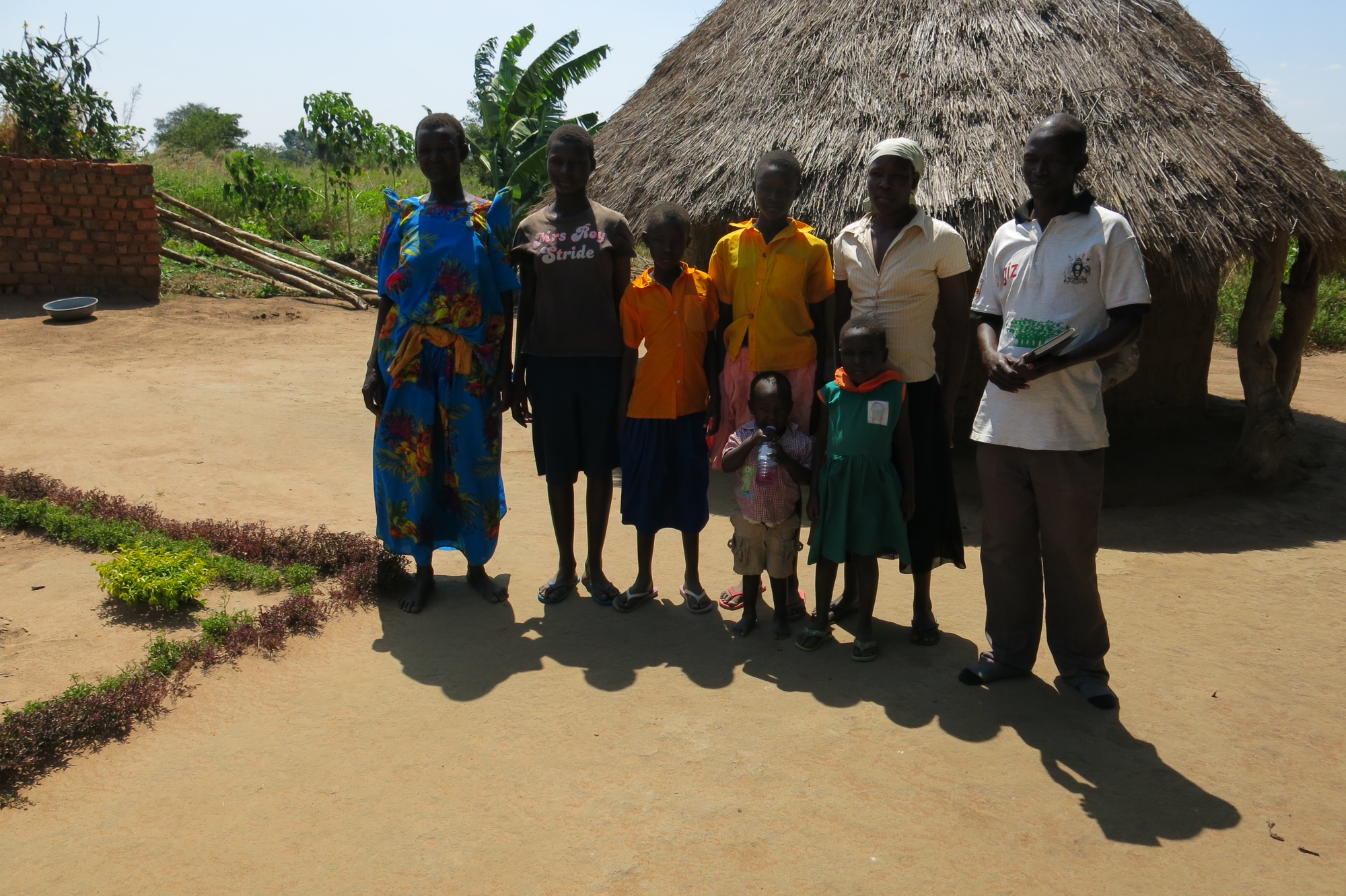
Upon arrival we sat with the family to learn more about them and ultimately how the WaterAid intervention had changed their lives. Julius was keen to show us his crops in the 'garden' which I guess was lost in translation as what he meant was essentially his farm. The crops he grew were rice, cassava (root vegetable), wheat, tomatoes, and greens locally known as bobo which is like spinach. Farming is hard in Uganda and very manually intensive. The borehole in the village was saving Julius' family time having to collect water so that they could focus more on their crops.
After showing us the crops we went to fetch clean water from the borehole with Dinah so that she could begin to prepare dinner. The borehole was only a short walk from the village so we carried the family's Jerry cans with us which ranged from from 5 to 20 litres. I was excited at the opportunity of using the water pump so jumped straight in. Here I am filling the 10l Jerry can.
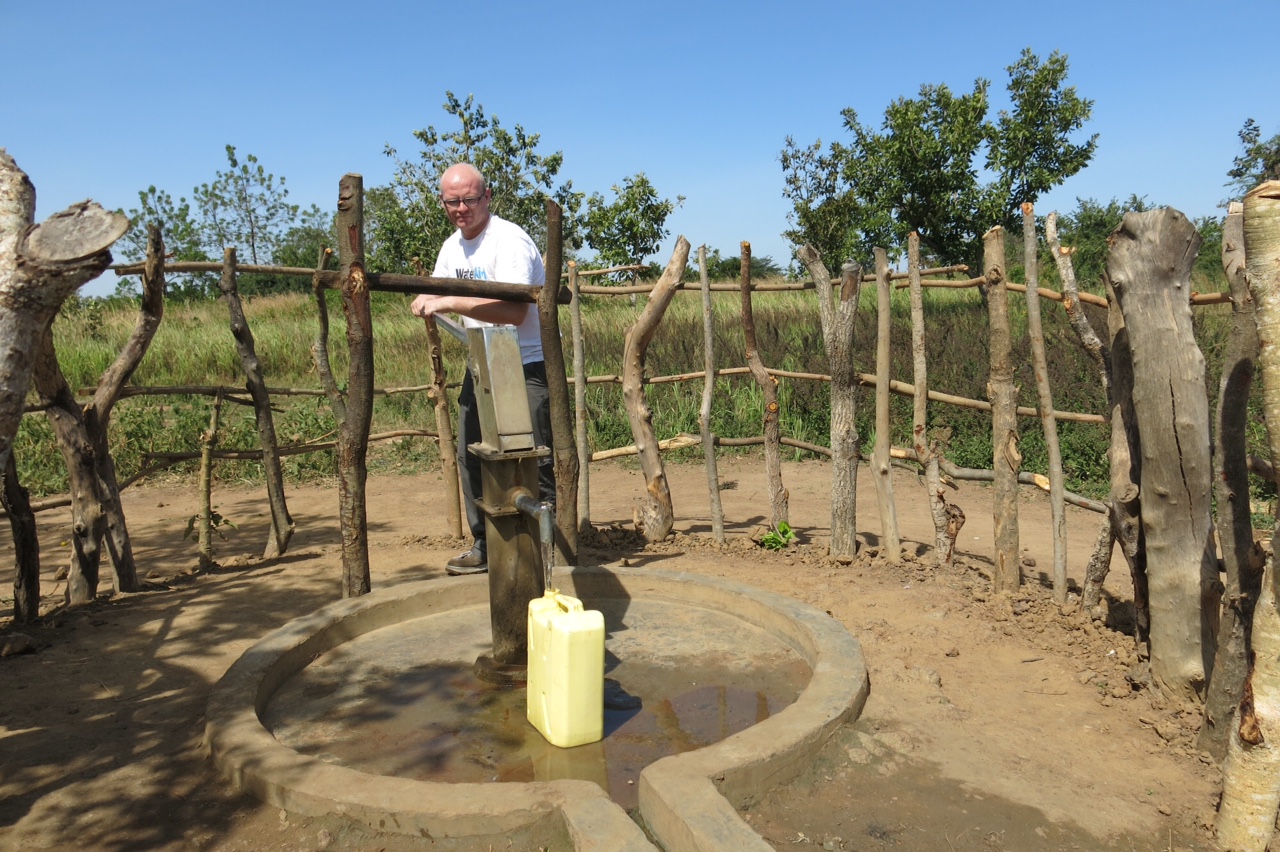
With the containers filled we headed back the village. Being the only man in our party I offered to carry the 20l Jerry can. Dinah and her friend laughed... and rightly so, the container was REALLY heavy, most people will know that 20l of water weighs 20kg! Dinah insisted she took the 20l container and proceeded to carry it back to the village in the traditional method (on the head!)
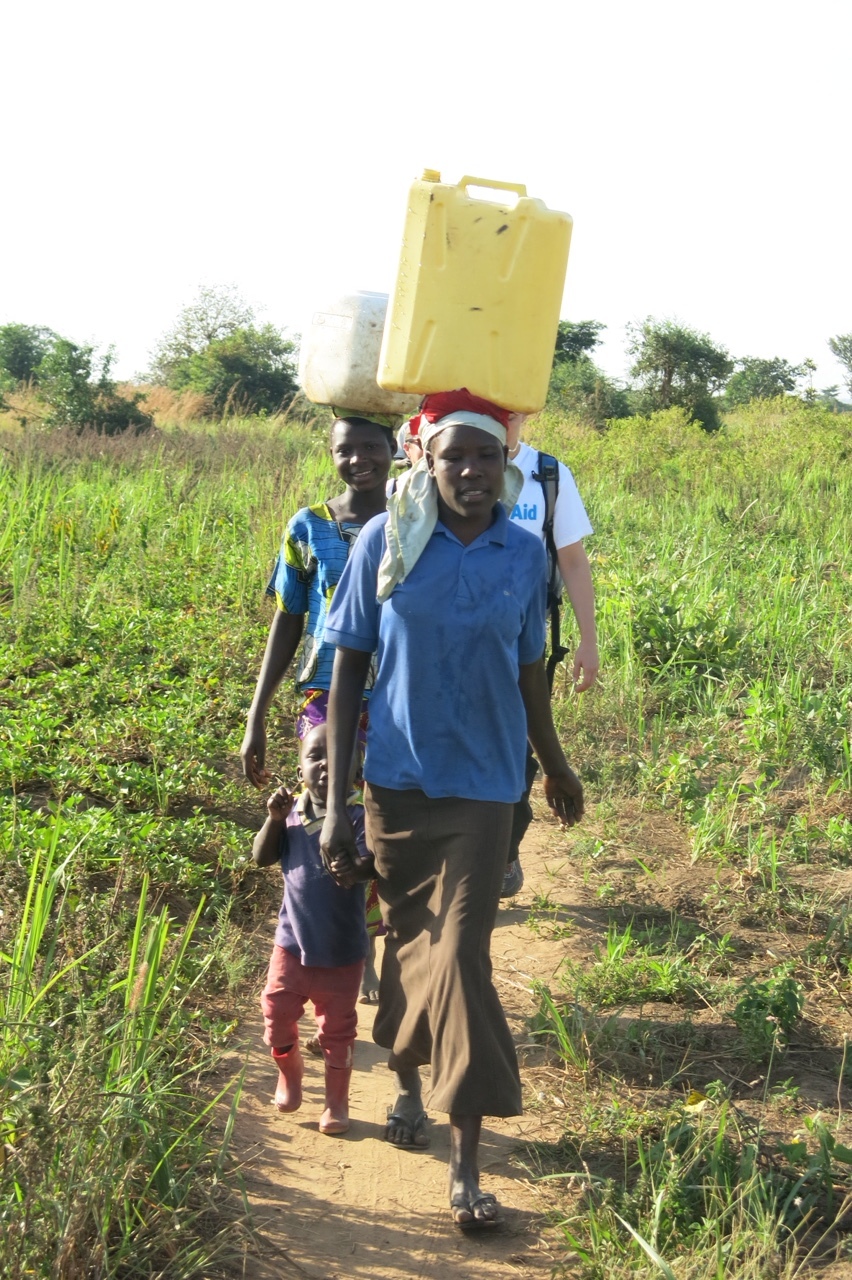
Curious as to how easy it would be walking with the cans on the head and willing to try anything once, I gave it a go... It was HARD. I couldn't even get the container to balance on my head without using my hands and that wasn't even trying to walk. The ladies of the village who collect water in this method must have incredible neck muscles and balance. It was really good to see that the distance from the homes to the borehole was manageable.
Now we had seen the borehole and the convenience it had given Julius and his family we were eager to see where the previous water source was. Julius offered to take us there so we trekked past the crops and over fields for about a kilometre.
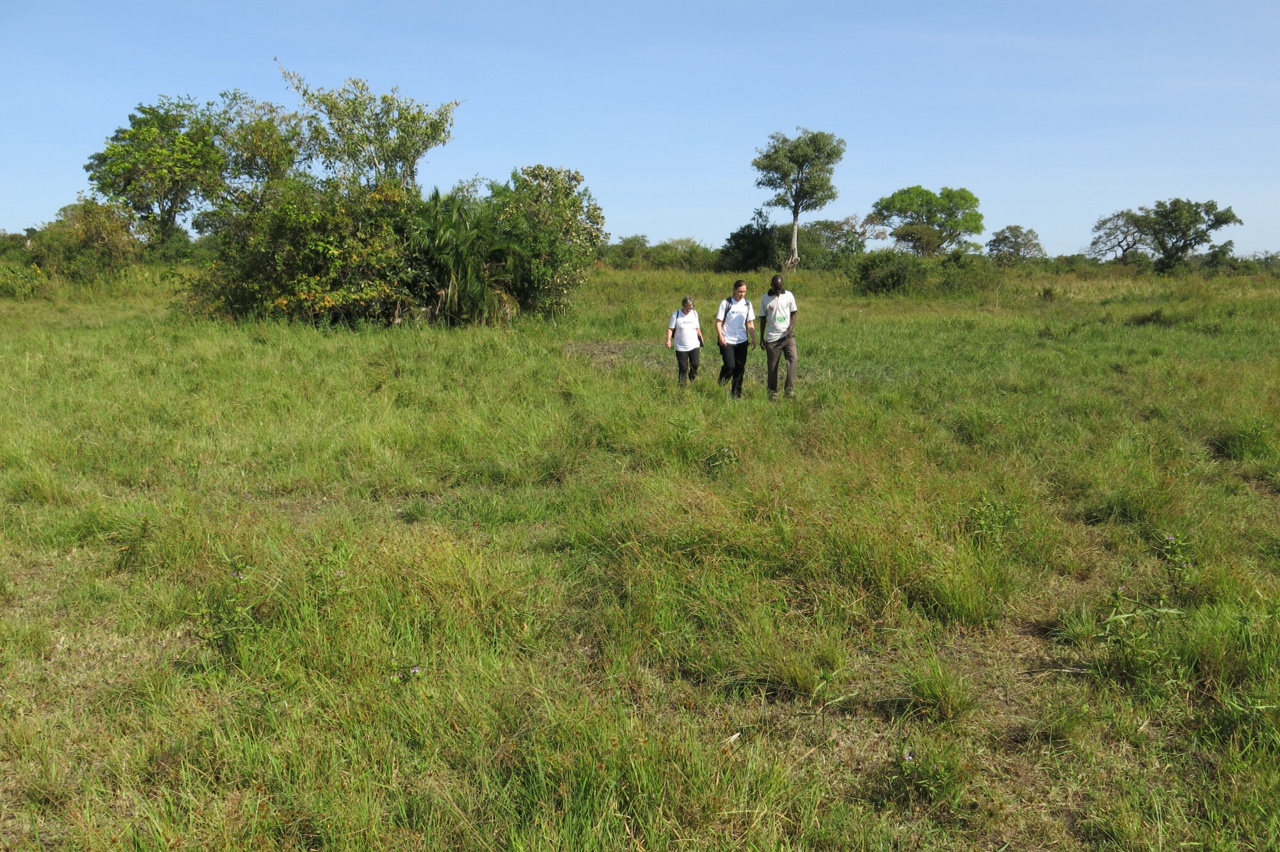
Knowing how hard it was to get water from the borehole which was just outside the village down a well-maintained path I can imagine how difficult it must have been carrying the water across flooded rice fields and on uneven ground. Eventually we reached the old water supply. A complete mix of emotions, relief that the walk to the dirty supply was no longer needed and sadness that until three years ago this is where the villagers were getting their water from. Julius told us that the water used to give people stomach aches and upset stomachs; this news didn't surprise me as the water source was essentially another swamp like the villagers were enduring in Ojolai.
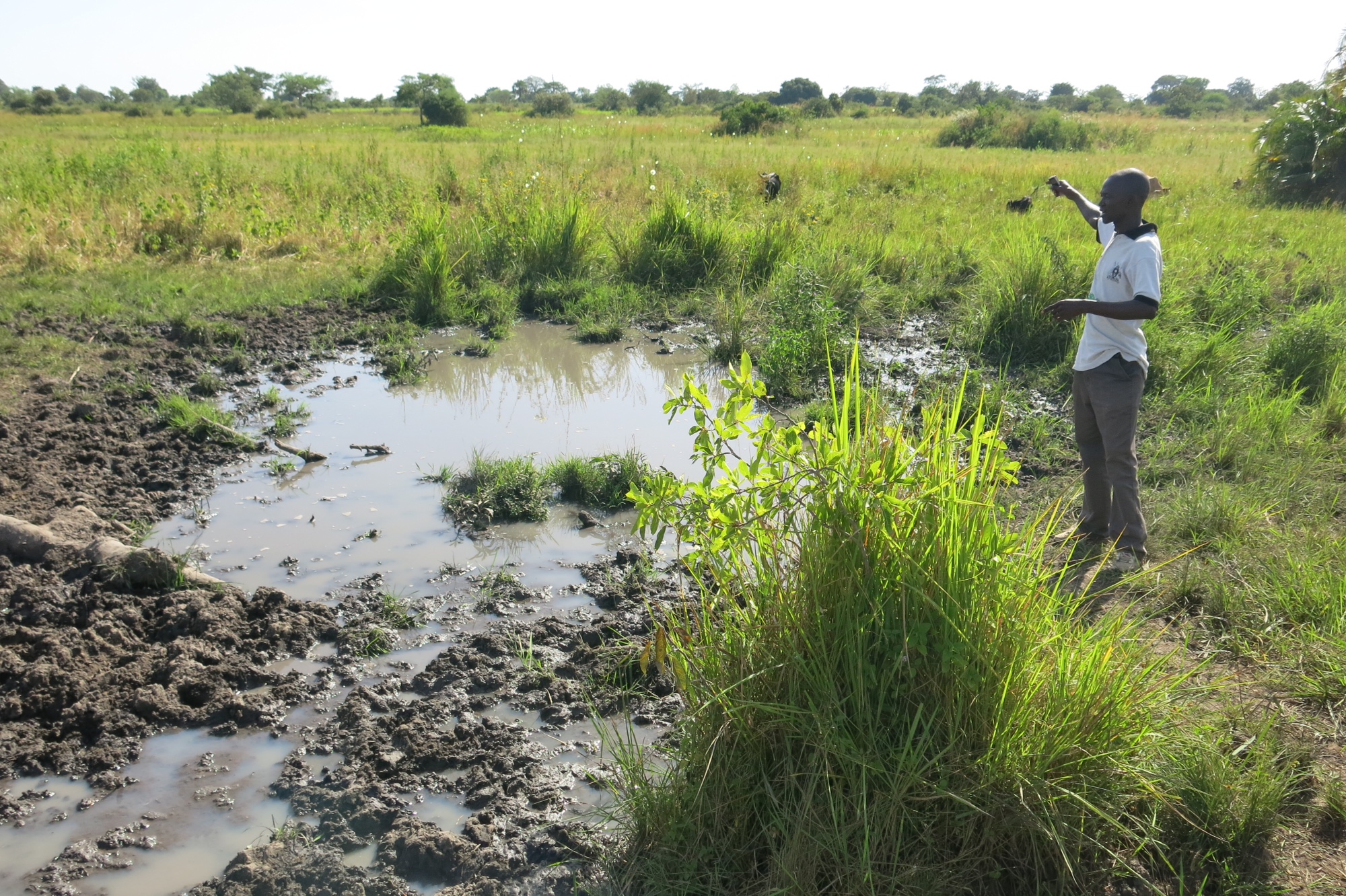
We headed back to Bobol where Dinah had made tea and sweet potato. Happy
the water source was clean we gratefully accepted the hospitality (In
Uganda the culture is very much that most house tasks are performed by
the woman of the household). We drank tea, discussed life in Uganda and
looked at Julius' photo albums.
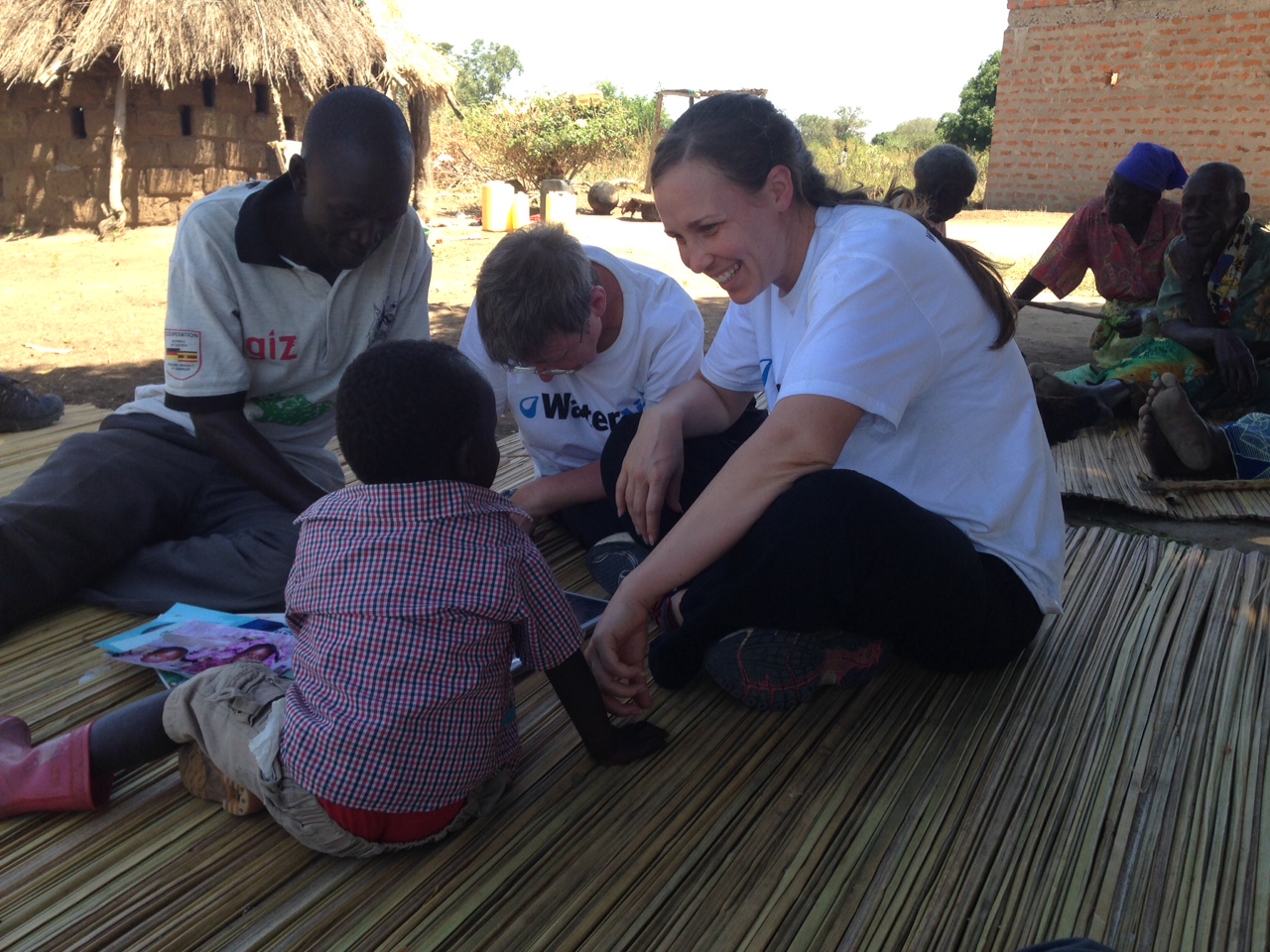
We also had the opportunity to understand more about how the borehole had helped change the village...
1) Improved health from not having to drink dirty water
2) Increased time to farm and maintain houses
3) Children can safely collect water
4) Children can go to school as they do not have to fetch water for their families
All of these benefits plus the fact that all houses had a latrine all contributes to making a happier, healthier, wealthier community and this really showed whilst visiting the community at Bobol.
In the afternoon we visited a school with latrines, borehole, water supply and a changing room for girls. A huge contrast to yesterday's community school with no water and no changing facilities. The children were educated on sanitation issues and had even decorated their school with slogans to remind them of key hygiene messages.
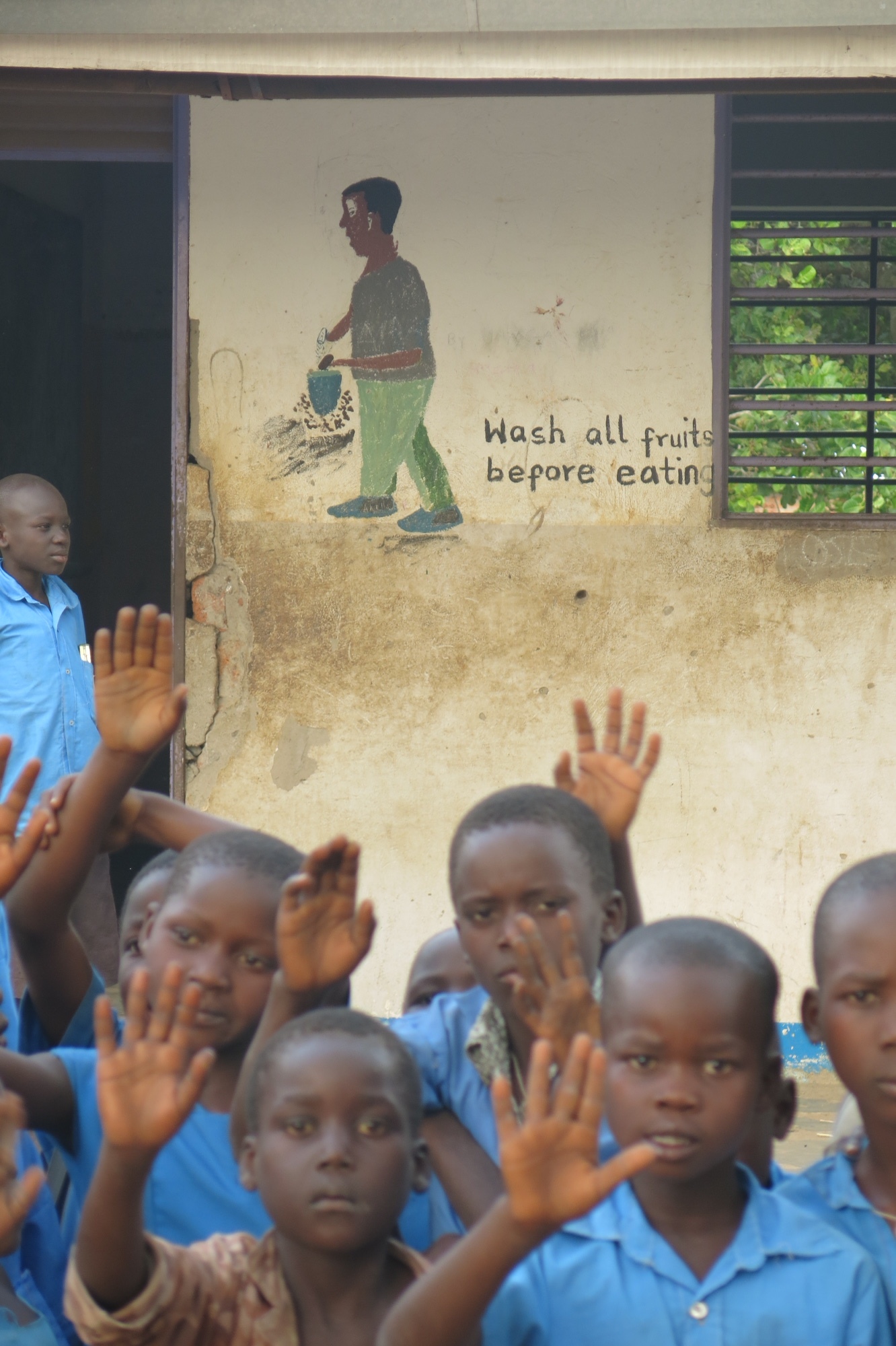
The school made their own washable and reusable sanitary towels and educated boys and girls about menstrual cycles so that boys would understand and not tease girls on their periods. It is certainly not a taboo subject, unlike in the UK. It was great to see such resourcefulness!
The visit also marked my first visit using a latrine! Apart from being a little smelly, the latrine was clean and not too bad to use.
It's fair to say the mood in the jeeps on the way home was an upbeat one, the past two days have been long and tiring but have given some real clarity on the benefits water and sanitation brings to communities.
